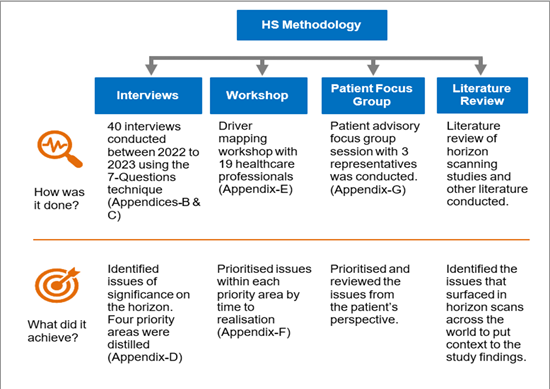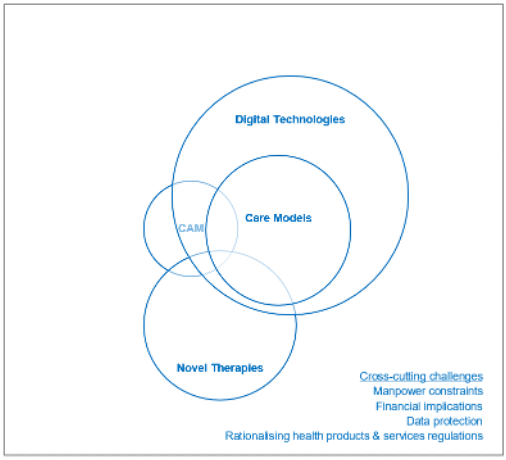
Health Services Regulation - Horizon Scanning Project
Health Services Regulation Horizon Scanning (HS) Study: Key Findings and Implications
Initiated in November 2022, the Health Services Regulation Horizon Scanning (HS) Study was commissioned by Singapore’s Ministry of Health (MOH) to anticipate emerging innovations and trends in healthcare that may have regulatory implications over the next 3 to 10 years.
The study was conducted by CoRE using a structured horizon scanning methodology, incorporating interviews with experts and practitioners, a driver mapping workshop, and a patient advisory focus group discussion. Participants represented a broad cross-section of the healthcare ecosystem, including policymakers, clinicians, patients, healthcare providers, innovators, and industry representatives.
Illustration of the HS Study Methodology:

The study identified 15 significant issues likely to impact health regulation, grouped into four interrelated domains:
- Changes in care models
- Advancements in digital technologies
- Innovations in personalised medicine
- Integration of complementary and alternative medicine (CAM)
Illustration of the overlapping areas of interest for the future healthcare

These themes were further supported by literature reviews that provided global context and insight into how other health systems are responding to similar developments.
Key Findings:
- Digital technologies are expected to be the primary driver of transformation in healthcare service delivery and consumption. However, they bring regulatory challenges that must be addressed with fit-for-purpose frameworks.
- The shift toward community and home-based care will require integrated regulatory approaches that span social, health, and wellness services, supporting more holistic and preventive care.
- The rise of personalised treatments and novel therapies, including genome editing, will demand agile regulatory strategies that balance safety with innovation.
- In light of Singapore’s cultural diversity, there is growing pressure to incorporate CAM into mainstream healthcare. This calls for the development of rigorous, evidence-based regulatory models.
This forward-looking study offers a critical foundation for strategic regulatory planning in Singapore, ensuring that the health system remains responsive, inclusive, and resilient in the face of rapid innovation.